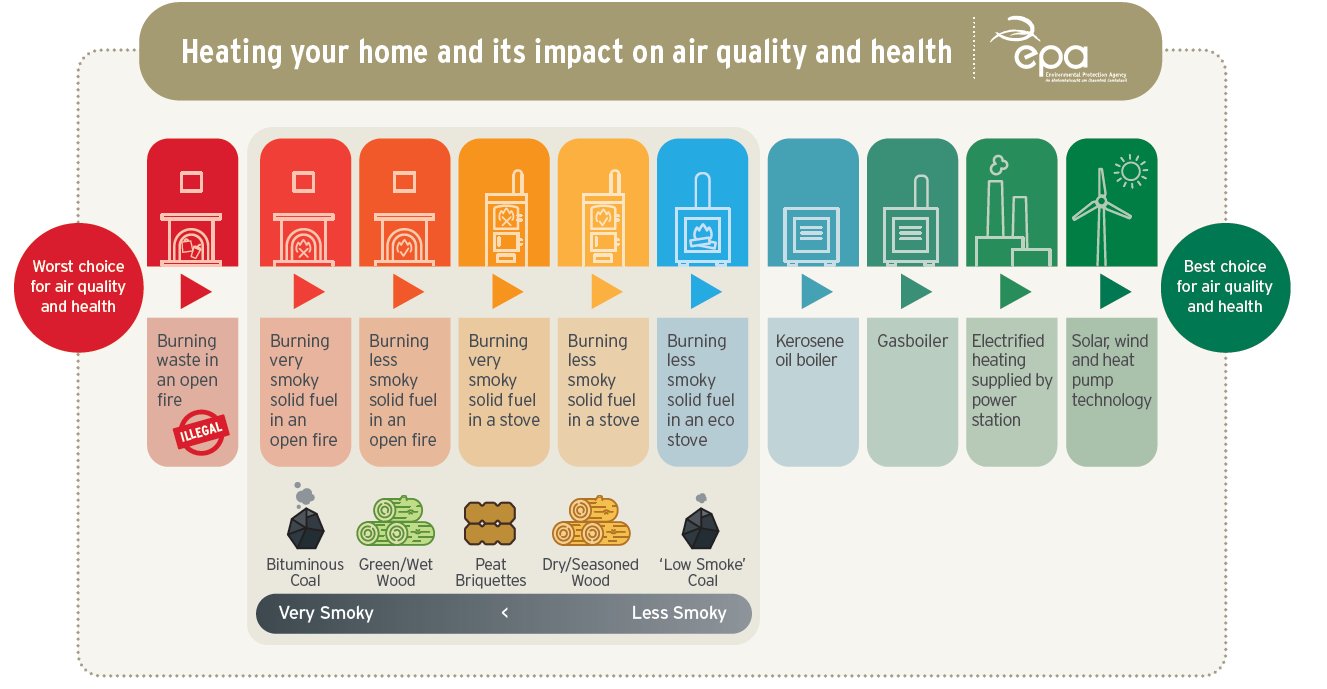Solid Fuel Regulations
Solid Fuel Regulations
The Air Pollution Act 1987 (Solid Fuels) Regulations 2022 (S.I. No. 529 of 2022) came into effect on 31 October 2022.
These regulations focus on improving air quality by restricting retail, online and commercial sale of smoky fuels, including smoky coal, turf and wet wood. These fuels are major contributors to air pollution, increasing fine particulate matter and other pollutants around us, including inside of homes. This pollution increases likelihood of respiratory disease, including asthma, as well as cardiovascular disease, dementia and impacts on the central nervous and reproductive systems.
While this is a change people for who have used smoky fuels up to now, there are many less harmful, cleaner and more cost-efficient fuels available, such as low-smoke coal. Wood bought for domestic heating will also be drier and cleaner to burn as a consequence of these new regulations.
It is also not possible to sell turf via retail, online or other media, in public houses or other public places.
Turbary rights
People with turbary rights and all other customary practices in respect of turf will be unaffected by these regulations. They will continue to be able to cut turf for their own use and will retain the ability to gift or sell turf. However, as stated above, no sale of turf may take place online or through other media (for example, advertising in local press), or from retail premises.
Further information
See more on the worst and best home heating options for air quality and your health with the below infographic from the Environmental Protection Agency:

This infographic details the worst home heating choices for air quality and health as:
- Burning waste in an open fire, which is illegal
- Burning very smoky (for example, bituminous coal), less smoky (for example green or wet wood) solid fuel in a open fire
- Burning very smoky (for example, peat briquettes) or less smoky (for example dry or seasoned wood) in a stove
The infographic also details the better and best home heating options for air quality and health. They are:
- Burning less smoky solid fuel (such as low smoke coal) in a eco stove
- Kerosene oil boiler
- Gas boiler. This is the third best option.
- Electrified heating supplied by a power station. This is the second best option.
- Solar, wind and heat pump technology. This is the best option.
The Department of the Environment, Climate and Communications has produced and regularly updates dedicated FAQs for the following sectors:
The Department of the Environment, Climate and Communications have produced an awareness video on the introduction of the solid fuel regulations.